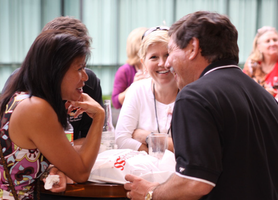Sensus
Psychotherapy
Social Anxiety / Social Phobia
Social Anxiety, also known as Social Phobia is diagnosed when people become overwhelmingly anxious and excessively self-conscious in everyday social situations. People with social phobia have an intense, persistent, and chronic fear of being watched and judged by others and of doing things that will embarrass them. They can worry for days or weeks before a dreaded situation. This fear may becomeso severe that it interferes with work, school, and other ordinary activities, and can make it hard to make and keep friends.
While many people with social anxiety realise that their fears about being with people are excessive or unreasonable, they are unable to overcome them. Even if they manage to confront their fears and be around others, they are usually very anxious beforehand, are intensely uncomfortable throughout the encounter, and worry about how they were judged for hours afterward.
Social anxiety can be limited to one situation (such as talking to people, eating or drinking, or writing on a blackboard in front of others) or may be so broad that the person experiences anxiety around almost anyone other than the family.
Physical symptoms that often accompany social phobia include blushing, profuse sweating, trembling, nausea, and difficulty talking. When these symptoms occur, people with PTSD feel as though all eyes are focused on them.
Social anxiety is often accompanied by other anxiety disorders or depressionand substance abuse may develop if people try to self-medicate their anxiety. Social Anxiety can be successfully treated with certain kinds of psychotherapy or medications.
Cognitive Behavioural Psychotherapy (CBT) has been shown to be of benefit in over-coming this condition.

Copyright © All Rights Reserved